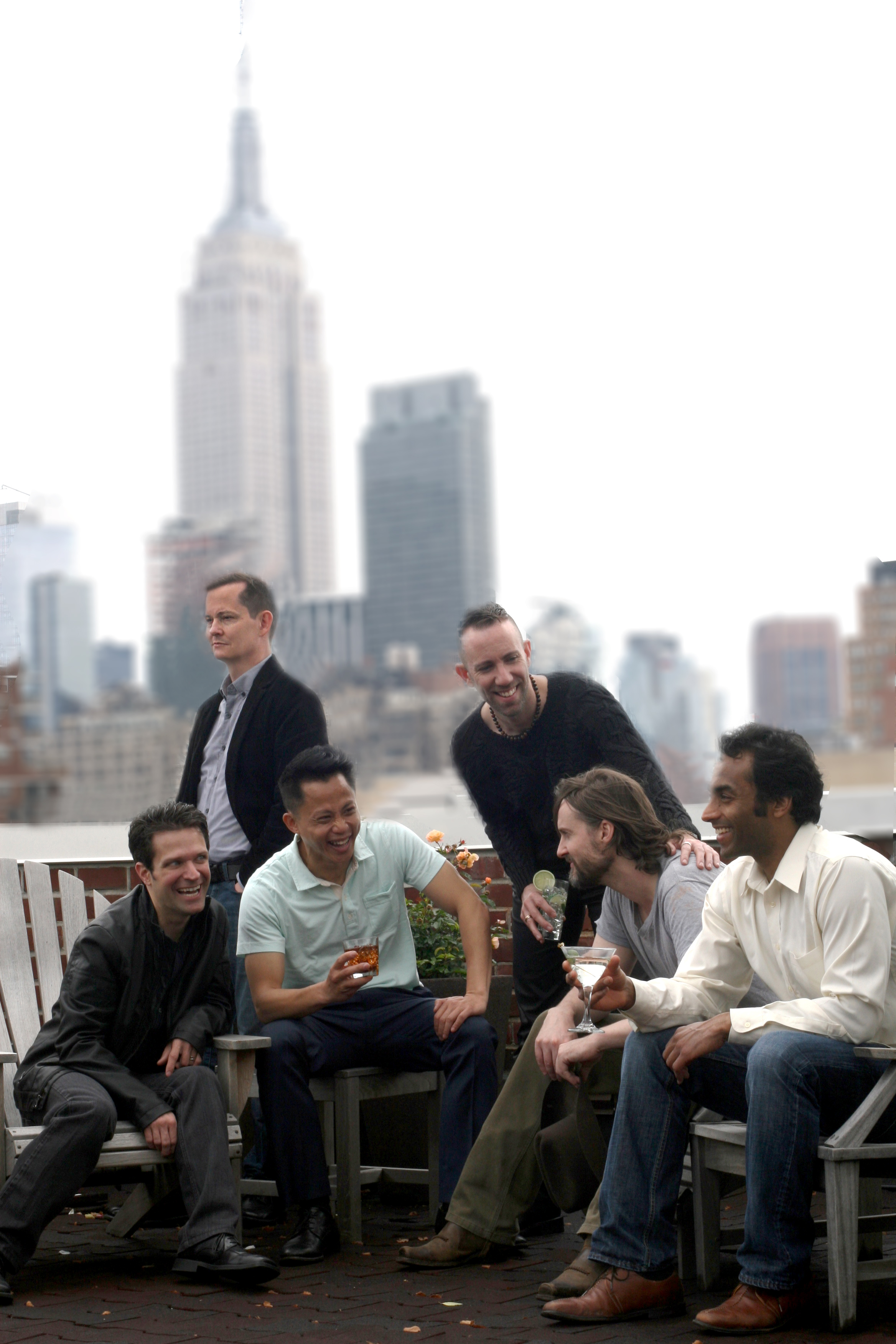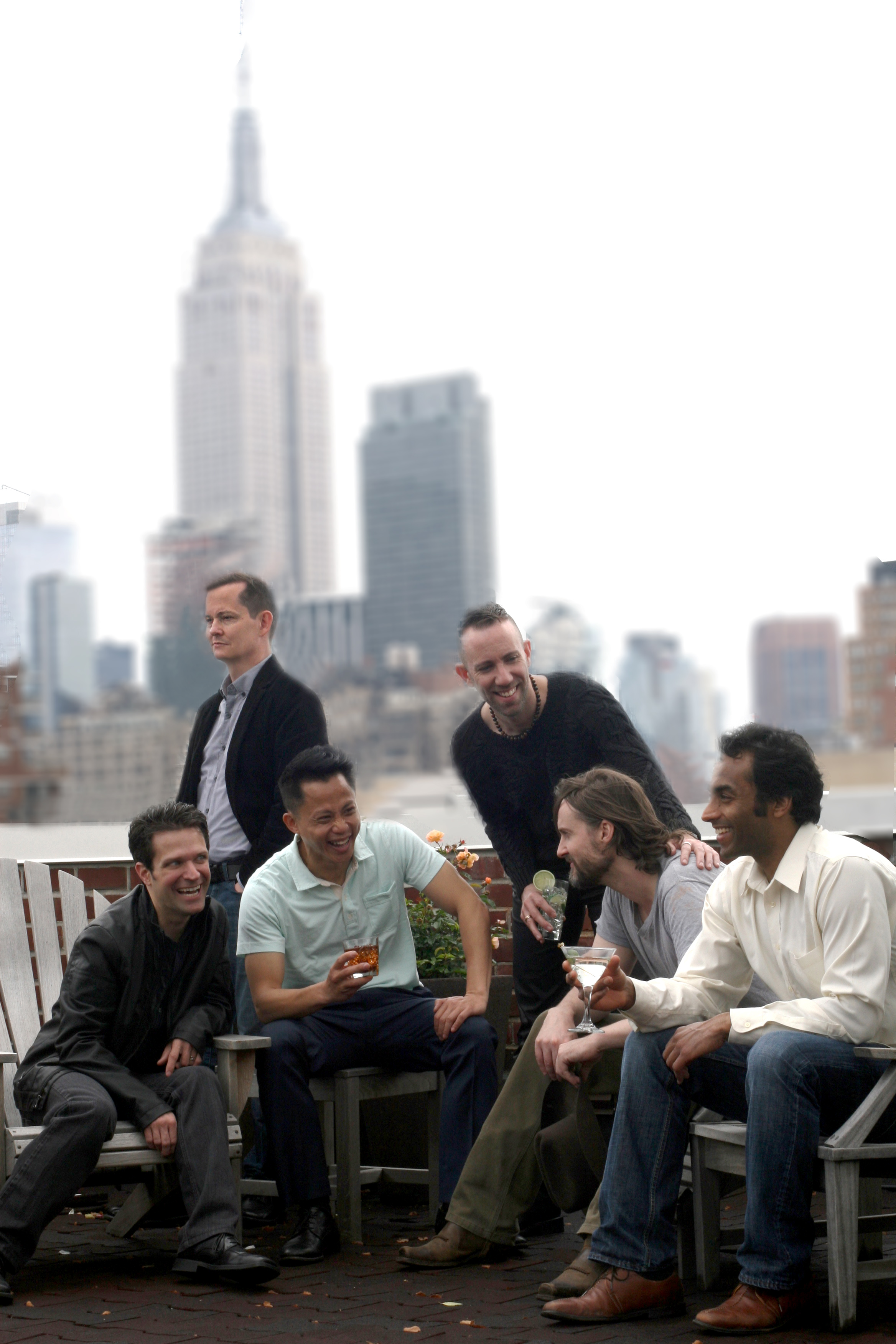
 Exploring how different a modern gay man’s life is, compared to what it used to be some 30-40 years ago, in his play “Women and Children†the playwright and director Michael Boothroyd concludes that even positive developments require adaptation. On the one hand, being open about their sexuality does not solve all the problems gay men may have, such as not being able to have or adopt children, or not finding love and companionship, the problems that straight people also encounter. On the other hand, they no longer have to hide their true selves from their friends and families, so they can “be both gay and happy.†Shining with optimism, this conclusion could have been even stronger if it was not handed to the audience on a silver platter.
Exploring how different a modern gay man’s life is, compared to what it used to be some 30-40 years ago, in his play “Women and Children†the playwright and director Michael Boothroyd concludes that even positive developments require adaptation. On the one hand, being open about their sexuality does not solve all the problems gay men may have, such as not being able to have or adopt children, or not finding love and companionship, the problems that straight people also encounter. On the other hand, they no longer have to hide their true selves from their friends and families, so they can “be both gay and happy.†Shining with optimism, this conclusion could have been even stronger if it was not handed to the audience on a silver platter.
While it is clear from the beginning that the play’s main theme is social change, the conflict emerges only towards the end of the show. Therefore, the resolution feels weak and rushed. Although we enjoy getting to know the characters and appreciate their humorous remarks, we have to wait till the end to find out what is at stake. Only in the final conversation are we told that Marcus (Michael Boothroyd), who hosts a dinner party in his Manhattan apartment, continues to dwell in the past and fails to notice the positive changes all around him. He thinks Chipotle is a soup kitchen and does not read his doorman’s text messages, which should inform him of new arrivals. He lives with the memory of his parents’ disowning him for being gay. He cannot even fully forgive his straight brother, Owen (Matthew Nichols), who came to terms with Marcus’s homosexuality and apologized for his past meanness. These and other unhealed wounds prevent him from moving on and opening up to people who care about him, even though they assure and encourage him otherwise.
Just as we learn all of these details of the protagonist’s past and begin wondering whether or not he will be able to find peace with himself, the play ends. This leaves us yearning for more and has the aftertaste of deceit. This is how one feels when buying a new gadget only to find out that it does not turn on.
This, however, is a problem of structure, not content. In addition to Marcus’s turmoil, we hear other characters’ stories, which are no less compelling. Seemingly younger than Marcus, his gay friends, the married couple, Jeff (Amar Srivastava) and Arthur (James Doan), and Zinc (Ryan Metzger), feel comfortable in the modern world and appear happy. However, they also have wounds only time and effort can heal.
Demonstrating keen understanding of human nature, the playwright unravels these stories little by little, which keeps the audience’s interest throughout the show. For example, we don’t think much of Jeff and Arthur’s adoption of puppies until we learn that they tried and failed to have “real children.†Similarly, we sympathize with Owen when he admits that his wife divorced him after a stripper gave him a hand job at a bachelor party. These revelations make Marcus less of a martyr and also remind us that 100% happiness is unattainable. Living means overcoming obstacles, learning from mistakes and moving on – a piece of wisdom any of us can use.
In addition, Boothroyd’s characters remind us that everything tastes better with humor. As Zinc tells Marcus, when he hooked up with a salesman in a fitting room in Macy’s, he wrote in the customer satisfaction survey, “The salesperson bent over backward to meet my needs.†The humor serves as the best illustration of how one can be gay, happy and comfortable with his sexuality.
In contrast to Zinc, Marcus is more serious about his experiences because he lived through tougher times. For instance, his idea of public sex comes down to the “shopping bag act,†with one man sitting on a toilet and the other one standing in a shopping bag. Since the outsider would only see a pair of legs and a bag, this constitutes both a realistic detail and a metaphor for closet homosexuality. Hence, while Zinc is open and laughing about his promiscuity, Marcus stays constrained, keeping his most important matters to himself.
That is to say since the characters’ conversations already convey the most important aspects of their personalities and lives, the lecture given to Marcus in the end is unnecessary. It would be more fun to watch him figure it out himself. Not only would it seem more organic, it would also give us the resolution we were left without. At the end of the day, it is, first and foremost, Marcus’s story, and, therefore, he should be the one to narrate it to us.

Leave a Reply